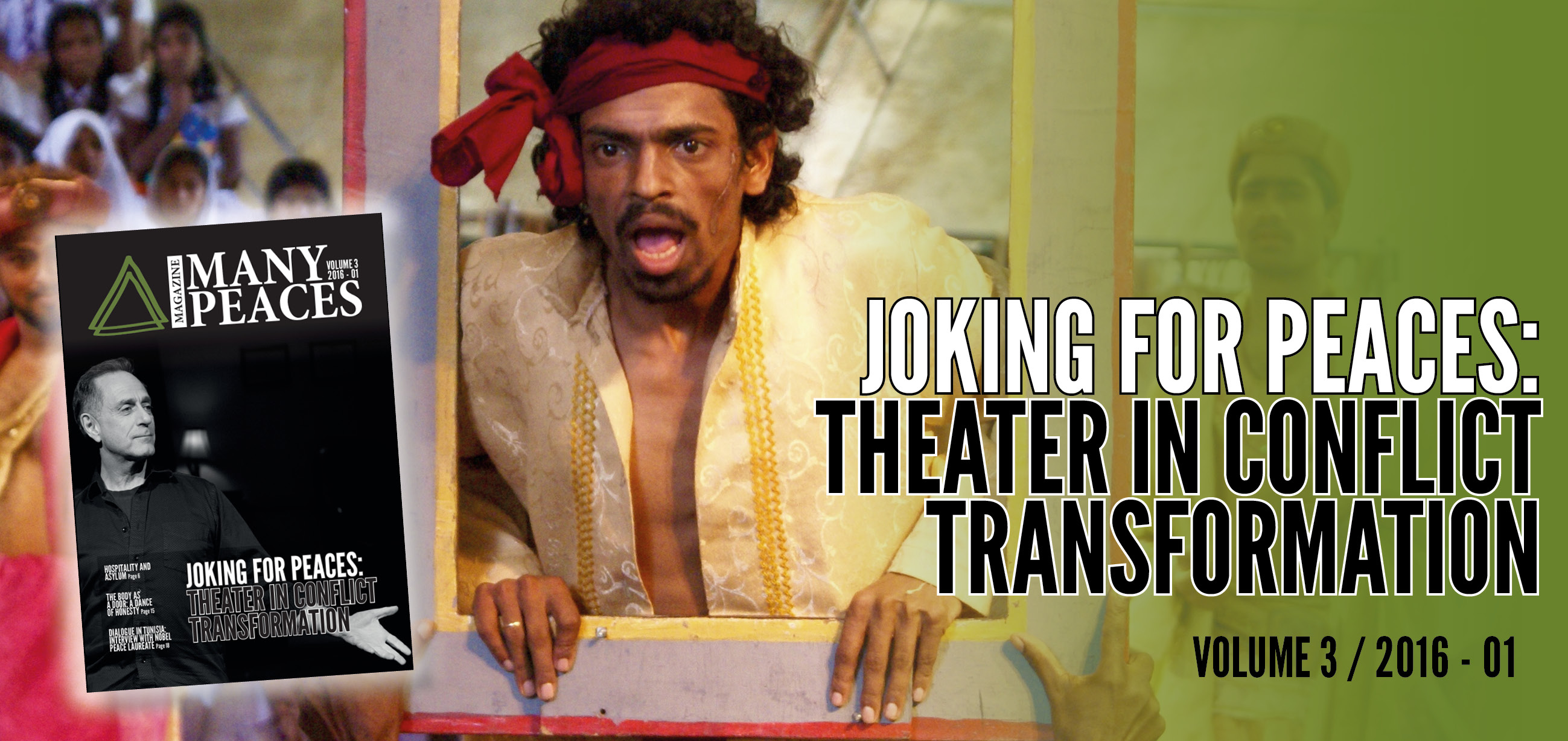The writing of the third volume of the Many Peaces Magazine was underway when a series of terrorist attacks occurred in Ankara, Beirut, Paris, the Sinai region of Egypt and Tunis. As an editorial team we have struggled in finding words in the light of loss and despair as results of the violent attacks. Our discipline of Peace and Conflict Studies is certainly called upon when suicide bombers target civilian areas and when heads of states declare war against enemies that are difficult to identify. As scholars and peace facilitators, we are asked to analyze and often to provide expertise. So how do we respond? How do we position ourselves and which courses of action do we recommend?
From the perspective of elicitive conflict transformation, there is no easy answer to such questions. Our approach to conflict is systemic and relational. The experts of conflicts are always the conflicting actors and it seems key to not speak about them in a removed and potentially patronizing manner. Possible next steps rather have to be identified from within the conflicting systems themselves. It, therefore, seems necessary to not fall into simplistic moral judgments and categorizations of right and wrong, good and bad. The call of the moment should rather be to “suspend judgment” as American peace research John-Paul Lederach recommends to elicitive peace workers. Yet, suspending judgment does not imply an imperative for silence! Peace work sometimes means raising difficult questions, even when they go against the mainstream. Elicitive peace workers are facilitators but sometimes they have to be ‘difficultators.’
To this end, they acquire their own elicitive tool boxes filled with methods that they apply in conflict analysis and conflict transformation work. One such method is Theatre for Living, which was founded by Canadian theatre artist David Diamond, whom you can see on the cover of this magazine. As a former student of the Brazilian revolutionary theatre director Augusto Boal, Diamond has developed Boal’s Theatre of the Oppressed further and integrated a systemic understanding of conflict into his work. Both his method and peace facilitation attitude make him an archetypical (and certainly there are many possible archetypes) elicitive peace worker. In this volume, we therefore feel honored to present not only his work but also projects that have been developed seeding from his contribution to Peace and Conflict Studies.
Greeting Note – David Diamond
[…] Art (and theatre is one art form) is the psyche of the community. In the same way as our bodies are made up of cells that comprise the living organism of the body, communities are made up of people that comprise the living organism of the community. Individuals need to express themselves in order to be healthy. So do communities. The way communities used to express themselves was through song, dance, drama – a language through which the psyche of the living community could find expression. Today we buy music, books, theatre, dance, visual art; as consumers we pay strangers to tell us stories about strangers. When do we get together as living communities to use this primal language to tell our own collective stories? To express our collective hopes, dreams and also our nightmares? The answer is we don’t and if we do, it is extremely rare. In the same way as individuals get sick if they keep things bottled up, communities get sick. The proof of that, I believe, is unfortunately, everywhere we look. […]

